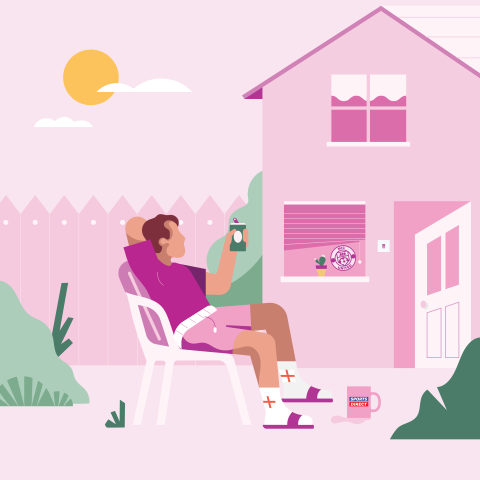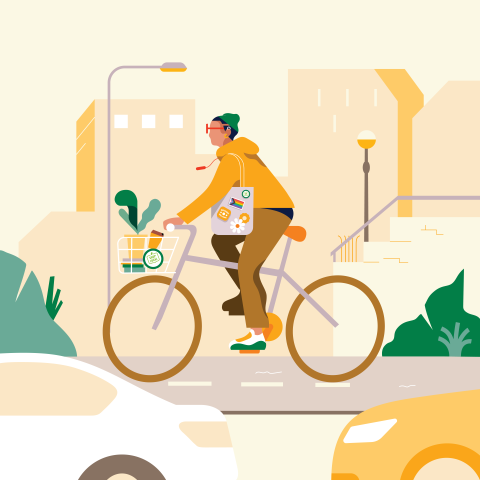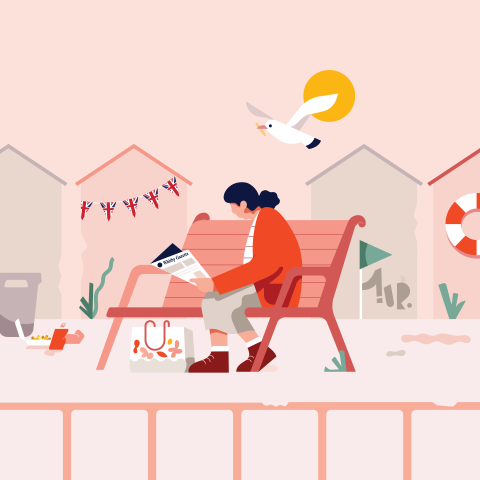20 per cent of the population

Frustrated with their circumstances with an appetite for radical solutions, Dissenting Disruptors crave dramatic change and strong leadership. Highly distrustful of institutions, opposed to multiculturalism and feeling disconnected from society, they are drawn to political movements that promise to overhaul the status quo and put people like them first.
“I think to sort the country out, we need politicians with a backbone and a pair of balls.”
Tony, Wolverhampton
“I think when I look back from when I was a kid, it feels like the country's lost its identity. We don't really know who we are anymore... Everyone feels that they have to caveat with saying I'm not racist.”
Johnny, Wigan
Key words
Frustrated, outsider, anti-establishment, disillusioned, worried, populist, distrusting, determined.
What they worry about
Immigration and cultural change, economic decline and lack of opportunities, political correctness silencing ordinary people, crime and social disorder, loss of British identity, crime.
Where you might find them
In post-industrial towns; in social housing or struggling with housing costs; working in manual or service jobs; in constituencies such as Blackpool South, Clacton, Ashfield, Dudley, Wolverhampton South East.
How they get their news
Older members of this group might tune into GB News, whereas the younger members are more likely to use social media and internet platforms such as YouTube, where they might hear directly from politicians such as Nigel Farage. Many avoid mainstream news entirely, seeing it as biased against people like them.
Learn more about Dissenting Disruptors

Alex
Alex comes home from another long day driving deliveries around Middlesbrough and opens a bottle of cider in his small back garden as the sun sets behind the terraced houses.
At 48, he is tired of greeting customers that do not speak English when they answer the door - it happens more and more these days, and he cannot help thinking his dad never had to deal with this when he worked in the now shrunken steel industry. Alex misses the idea of Britain actually making things instead of just shuffling Amazon packages around, wondering how a country that once built ships and cars ended up employing people like him to deliver other countries' products to people who've just arrived.
During his shifts, Alex has talk radio on constantly - he does not like the BBC, which he thinks is biased, but finds the phone-ins refreshing, where ordinary people actually say what they think without worrying about offending anyone.
He is particularly drawn to Nigel Farage's common-sense take on things, feeling like finally someone understands that working people are getting a raw deal while politicians live in their bubbles. Alex does not bother voting most of the time because it never changes anything, but when he thinks about the future, he yearns for someone to sweep away the whole rotten system and start afresh - though he is not holding his breath that it will ever happen.
Alex gets most of his information about what’s really going on in the country by scrolling through Facebook groups and YouTube channels that share videos the mainstream media will not show. He is particularly drawn to content that exposes what he sees as the establishment's lies - whether it's about immigration statistics, government spending, or the real reasons behind decisions that seem designed to benefit the elite. When his sister criticises him for sharing posts she calls "conspiracy theories," Alex gets frustrated because he knows she is just repeating what the BBC told her to think, while he is actually doing his own research and seeing the bigger picture.
The changes Alex has witnessed in Middlesbrough over the past decade have reinforced his sense that the country is being transformed without anyone asking ordinary British people what they want. Lots of barber shops have opened in his local high street, the pub he grew up visiting with his parents have closed down, and half the houses on his street are occupied by people who seem to have no connection to the community he grew up in.
Alex does not consider himself racist - he has got nothing personal against immigrants - but he cannot understand why politicians prioritise newcomers over families like his who've been here for generations and are struggling to get by. Alex is drawn to strong leaders in politics who are not afraid to speak uncomfortable truths, even if it means breaking a few eggs along the way.
Explore the other Segments:





